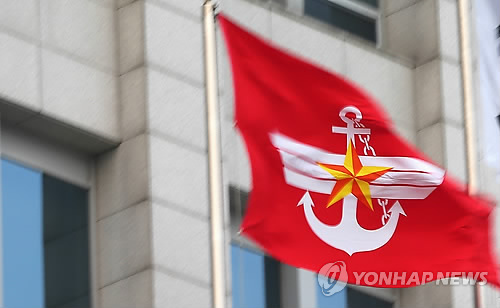South Korea's military has revised its long-term defense reform plan to better cope with North Korean threats, including the creation of special units tasked to neutralize its leadership and key facilities in case of contingencies, officials said Thursday.
"We have made the revision in a bid to secure the most urgent defense capabilities against North Korean threats over the next five years (through 2021)," a high-ranking ministry official told reporters in a background briefing.
"Under the changes, we will strengthen combat capabilities in both limited conflict and full-scale war."

Major changes include the establishment of special operations forces under the Joint Chiefs of Staff and Air Force this year, the integration of the First and Second Army Commands into a bigger ground operations command by 2018, and the creation of a surveillance aircraft fleet in the Air Force by 2020, the ministry said.
"The special operations brigade under the JCS and the special operations aircraft fleet under the Air Force will be established in line with the Korea Massive Punishment & Retaliation plan," the official said.
The plan directly targets the North's military leadership with the aim of neutralizing key figures and infrastructure should there be clear signs of the imminent use of nuclear weapons.
It is part of the nation's three pillars of response to North Korean threats along with the "kill chain" strike system and the Korean Air and Missile Defense system, both designed to detect and destroy incoming missiles in the shortest possible time.
The JCS and the Air Force said they had already beefed up their existing teams designed to deliver guidelines for fighting against North Korea's nuclear weapons and other weapons of mass destruction.
The military also plans to reduce the number of generals by 40 to 390 by 2020 and regular forces to 522,000 from the current 625,000 by 2022.
North Korea is under the toughest UN sanctions ever because of its fourth nuclear test and long-range rocket launches. Last year, the communist regime conducted two nuclear tests and 24 ballistic missile launches to achieve its stated goal of developing a long-range nuclear-tipped missile capable of reaching the US mainland.
In his New Year's Day address, North Korean leader Kim Jong-un said that the preparation for test-firing of an intercontinental ballistic missile is in the final stages, adding that it could be conducted anytime and anywhere.
Recently, South Korean military officials said that North Korea appears to have built two missiles presumed to be ICBMs and placed them on mobile launchers for firing tests in the near future.
Another missile launch is widely expected at the end of February or early March ahead of the Key Resolve and Foal Eagle joint military exercises to be conducted by Seoul and Washington next month. (Yonhap)
"The special operations brigade under the JCS and the special operations aircraft fleet under the Air Force will be established in line with the Korea Massive Punishment & Retaliation plan," the official said.
The plan directly targets the North's military leadership with the aim of neutralizing key figures and infrastructure should there be clear signs of the imminent use of nuclear weapons.
It is part of the nation's three pillars of response to North Korean threats along with the "kill chain" strike system and the Korean Air and Missile Defense system, both designed to detect and destroy incoming missiles in the shortest possible time.
The JCS and the Air Force said they had already beefed up their existing teams designed to deliver guidelines for fighting against North Korea's nuclear weapons and other weapons of mass destruction.
The military also plans to reduce the number of generals by 40 to 390 by 2020 and regular forces to 522,000 from the current 625,000 by 2022.
North Korea is under the toughest UN sanctions ever because of its fourth nuclear test and long-range rocket launches. Last year, the communist regime conducted two nuclear tests and 24 ballistic missile launches to achieve its stated goal of developing a long-range nuclear-tipped missile capable of reaching the US mainland.
In his New Year's Day address, North Korean leader Kim Jong-un said that the preparation for test-firing of an intercontinental ballistic missile is in the final stages, adding that it could be conducted anytime and anywhere.
Recently, South Korean military officials said that North Korea appears to have built two missiles presumed to be ICBMs and placed them on mobile launchers for firing tests in the near future.
Another missile launch is widely expected at the end of February or early March ahead of the Key Resolve and Foal Eagle joint military exercises to be conducted by Seoul and Washington next month. (Yonhap)




![[Herald Interview] 'Amid aging population, Korea to invite more young professionals from overseas'](http://res.heraldm.com/phpwas/restmb_idxmake.php?idx=644&simg=/content/image/2024/04/24/20240424050844_0.jpg&u=20240424200058)












![[KH Explains] Korean shipbuilding stocks rally: Real growth or bubble?](http://res.heraldm.com/phpwas/restmb_idxmake.php?idx=652&simg=/content/image/2024/04/25/20240425050656_0.jpg&u=)

